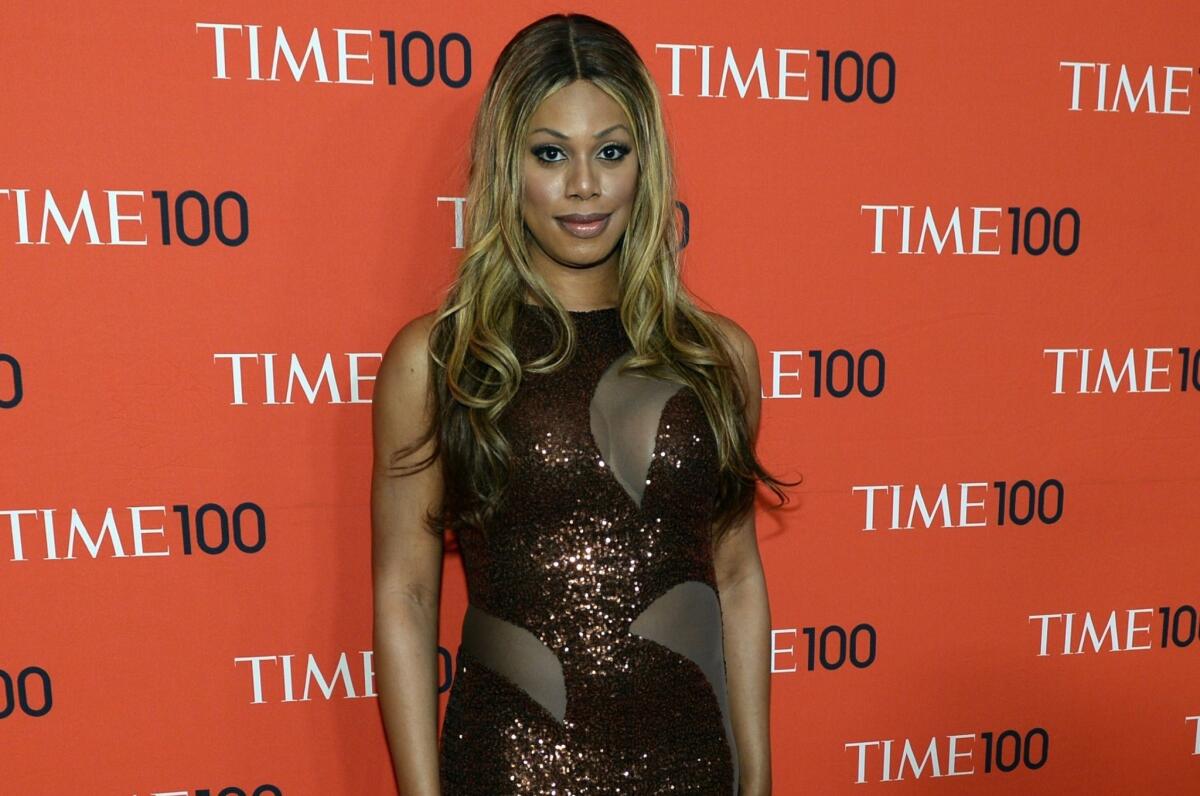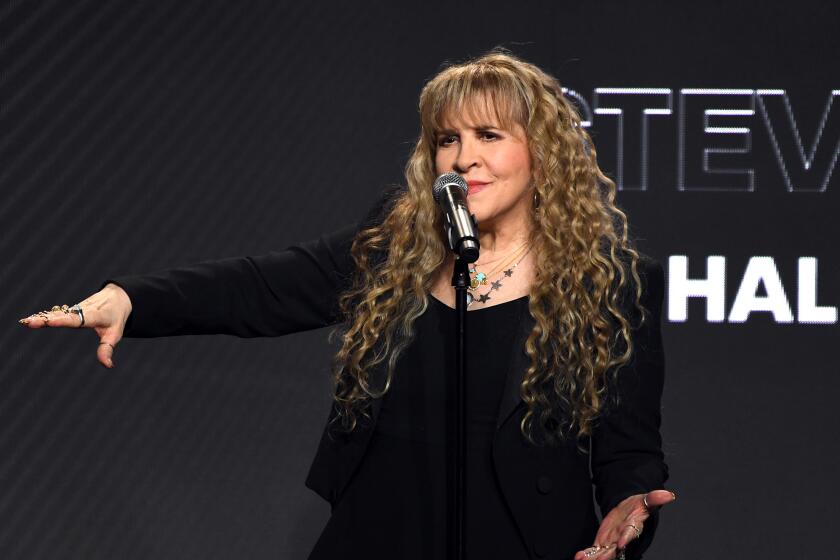Transgender ‘OITNB’ star Laverne Cox lands Time mag cover

- Share via
Laverne Cox, the transgender star of Netflix’s “Orange Is the New Black,” has landed the cover of Time magazine’s June 9 issue.
The LGBT rights advocate, who plays hairstylist Sophia Burset in the critically acclaimed series, is featured in the magazine’s cover story “The Trans Gender Tipping Point” and talks about her struggle as a trans individual in an online Q&A with the mag.
The cover features a full-length portrait of the actress in a blue dress and comes on the heels of the magazine excluding her from its annual list of 100 most influential people, which came with its own controversy, and also makes her the first transgender person to land on its glossy front page. Indicentally, the magazine honored the show’s creator, Jenji Kohan.
But there doesn’t seem to be any animosity on Cox’s end: “Thanks @TIME for this lovely bday present, a cover story 2 highlight the profound issues trans people face everyday,” Cox tweeted Thursday along with a shot of the cover.
The actress, who also appeared on “Law and Order,” “Law & Order: SVU” and HBO’s “Bored to Death” and competed on VH1’s “I Wanna Work for Diddy,” is being hailed as modern-day champion of the trans cause thanks to “Orange Is the New Black” and Katie Couric’s confrontational interview with the actress this year. (The show posts its second season on June 6, and work has begun on a third season, Show Tracker reported.)
In the Q&A, Cox insists that “there’s not just one trans story. There’s not just one trans experience,” and also lays out details of her personal journey as one of the estimated 1.5 million Americans that identifies as transgender.
“I was very feminine and I was really bullied, majorly bullied,” she told the mag of her childhood. “There was this side of me that was this over-achiever that loved learning. But then I was also taunted at school. I was called names. I was made fun of.”
The Mobile, Ala., native’s third-grade teacher called her mom to tell her that her son would “end up in New Orleans wearing a dress.”
“Up until that point I just thought that I was a girl and that there was no difference between girls and boys. I think in my imagination I thought that I would hit puberty and I would start turning into a girl,” she said, adding that her way of thinking changed after she started seeing a therapist.
“Going to a therapist and the fear of God being placed in me about ending up in New Orleans wearing a dress, that was a profoundly shaming moment for me,” she said. “I associated it with being some sort of degenerate, with not being successful. My mother was a teacher. She was grooming my brother and me to be successful, accomplished people. I didn’t associate being trans, or wearing a dress, with that, or wanting to be a girl with being successful. So it’s something I just started to push down. I wanted to be famous, I wanted to perform. Those things I really, really wanted more than anything else.”
But despite that, she said that her upbringing taught her that her attraction to men was a sin and she feared disappointing her late grandmother, which eventually led to a suicide attempt.
“I imagined that my grandmother was looking down on me and that she knew what I was thinking, because she’s in heaven. I just imagined that I was disappointing her and it just was devastating for me. So I went to the medicine cabinet and got a bottle of pills. And took them. And swallowed them. And went to sleep, hoping not to wake up. And I did wake up, with a really bad stomach ache. I don’t remember what the pills were. Whatever it was, I thought that they would kill me, but they didn’t.”
She also embraced androgyny growing up but said that it “really wasn’t any better” in terms of how people perceived and received her. But it did help get her to where she is now, which is a long way from that place because she’s “absolutely” happy now.
“Happiness is weird though. I’m so busy and I’m living my dream. I feel like myself and I feel pretty integrated, like the person that I am inside is who the world is seeing, which feels calming. But it’s not like ‘Oooooohhh, I am woman now and the world is amazing.’ There’s hardships. There are a lot of struggles still. I’m happy that I am myself and I couldn’t imagine my life if I were still in denial or lying, pretending to be a boy. That seems ridiculous to me. That seems crazy at this point.… It’s nice to be done with transitioning.”
More to Read
The biggest entertainment stories
Get our big stories about Hollywood, film, television, music, arts, culture and more right in your inbox as soon as they publish.
You may occasionally receive promotional content from the Los Angeles Times.











